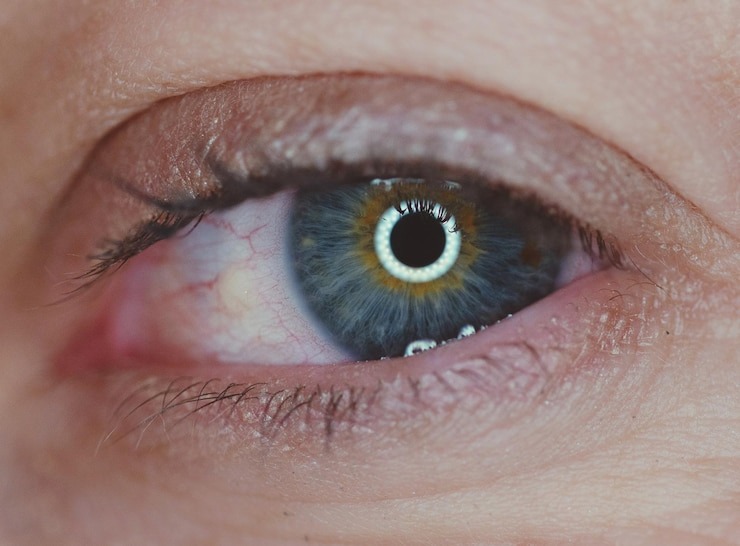
Corneal swelling, or corneal edema, is a condition where the cornea (the clear, dome-shaped surface that covers the front of the eye) retains fluid and becomes thicker. This phenomenon can become more pronounced during the night. Understanding the underlying causes, symptoms, and preventative measures of corneal swelling at night can help maintain optimal eye health. This blog post will explore the intricacies of corneal swelling, its relation to night-time conditions, and ways to manage it effectively.
What is Corneal Swelling?
The cornea is a vital part of the eye that helps focus light onto the retina, enabling clear vision. Corneal swelling occurs when fluid accumulates within the corneal layers, causing it to thicken and become cloudy. This condition can interfere with vision and lead to discomfort or pain. Understanding corneal swelling requires a deep dive into the anatomy of the cornea and its function.
Symptoms of Corneal Swelling
Recognizing the symptoms of corneal swelling is crucial for early diagnosis and treatment. Common symptoms include blurred or cloudy vision, the sensation of a foreign body in the eye, increased sensitivity to light (photophobia), eye pain or discomfort, halos around lights, and reduced visual clarity, especially upon waking. These symptoms may vary in intensity and can have a significant impact on daily activities, particularly if the swelling worsens at night.
Causes of Night-Time Corneal Swelling
Several factors contribute to corneal swelling at night. The cornea naturally thickens during sleep due to reduced oxygen levels when the eyes are closed. Other potential causes include contact lens wear, eye surgery, eye infections, and Fuchs' endothelial dystrophy. Wearing contact lenses, especially overnight, can restrict oxygen flow to the cornea, exacerbating swelling. Procedures such as LASIK or cataract surgery can impact the cornea and may increase susceptibility to swelling at night. Bacterial or viral infections can lead to corneal inflammation and swelling, which may intensify during the night. Moreover, Fuchs' endothelial dystrophy, a genetic disorder affecting the inner layer of the cornea, leads to the gradual build-up of fluid and swelling, often noticeable in the morning after waking.
Impact of Night-Time Conditions on the Cornea
The cornea relies on a continuous supply of oxygen to maintain its health. During the day, open eyes are exposed to ample oxygen from the air. However, at night, with the eyes closed during sleep, this oxygen supply diminishes, potentially leading to hypoxia-induced swelling. Additionally, the tear film that promotes nutrient exchange and waste removal is less active at night, further influencing corneal health.
Diagnosing Corneal Swelling
If you experience symptoms of corneal swelling, it is essential to consult an eye care professional. Diagnosis typically involves visual acuity tests to assess the clarity of your vision, slit-lamp examination to provide a detailed view of the cornea, pachymetry to measure the thickness of the cornea, and specular microscopy to evaluate the corneal endothelial cells. These diagnostic tools help determine the extent of swelling and identify underlying causes. Consult with us for swollen cornea to receive expert guidance and treatment options tailored to your needs.
Treatment Options
Treatment for corneal swelling aims to alleviate symptoms, reduce fluid build-up, and address the root cause. Options include hypertonic saline drops or ointments, which help draw excess fluid out of the cornea, reducing swelling. Topical corticosteroids or non-steroidal anti-inflammatory drugs (NSAIDs) can decrease inflammation and swelling. Lifestyle modifications, such as changing contact lens habits, maintaining good eyelid hygiene, and using a humidifier at night, can help manage symptoms. In severe cases, surgical procedures such as endothelial keratoplasty or corneal transplant may be necessary to restore corneal function.
Preventative Measures
Preventing corneal swelling involves adopting healthy eye care practices. Avoiding overnight contact lens use is crucial to allow proper oxygenation. Maintaining clean contact lenses by following proper hygiene can reduce the risk of infections. Using protective eyewear can shield your eyes from environmental irritants and potential trauma. Staying hydrated supports overall eye health, and regular eye exams can catch issues early and prevent complications.
Living with Corneal Swelling
While corneal swelling can be managed, it is essential to remain vigilant about eye health. Monitor any changes in vision or discomfort closely, follow medical advice, adhere to prescribed treatments, and attend follow-up appointments. Staying informed about your condition and potential developments, along with creating a conducive environment for eye health (such as using humidifiers to maintain moisture levels), can significantly reduce the impact of corneal swelling on daily life.
Conclusion
Corneal swelling at night is a condition influenced by various factors, including oxygen deprivation during sleep, contact lens use, and underlying medical conditions. Understanding its causes, symptoms, and treatment options is essential for maintaining optimal eye health. By adopting preventative measures and seeking timely medical intervention, individuals can manage corneal swelling effectively and ensure clear, comfortable vision.